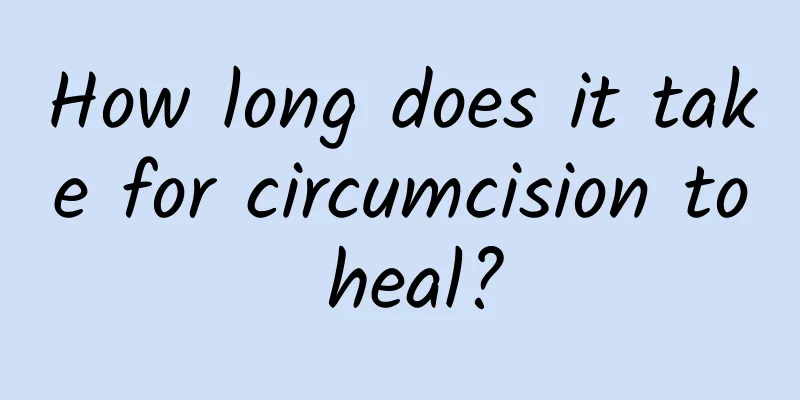Things to note the day before a male physical examination

|
With the rapid economic development, people pay more attention to their health. Therefore, annual physical examination is very important. For men, because they are busy with work every day and do not pay attention to their health, men rarely have physical examinations. However, if men want to have a physical examination, they must pay attention to several things. The following are things that men should pay attention to before a physical examination. (1) Avoid arbitrarily abandoning inspection itemsThe examination items set in the physical examination form include both basic items that reflect the health status of the body and some special examination items for malignant diseases and common diseases. Some examinations are of special significance for the early detection of diseases. For example, the rectal direct examination is particularly important for the detection of rectal tumors in examinees over 40 years old. Some examinees voluntarily give up the examination because they are afraid of trouble or shy. If the examinee really has a disease, he will naturally lose the best time for treatment, and the consequences are self-evident. (2) Avoid stopping medication before a physical examination Blood sampling requires fasting, but patients with chronic diseases should be treated differently. For example, patients with hypertension need to take antihypertensive drugs every morning to maintain stable blood pressure. Abruptly stopping or delaying medication will cause a sharp rise in blood pressure and cause danger. Blood pressure should be measured after taking the medication as usual, and the physical examination doctor can also evaluate the current antihypertensive plan. The effect of taking a small amount of antihypertensive drugs on laboratory tests is slight and can be ignored. Therefore, patients with hypertension should come for a physical examination after taking antihypertensive drugs. Patients with diabetes or other chronic diseases should also take medication in time after blood sampling, and routine treatment should not be interfered with by physical examinations. (3) Avoid blood collection too late Physical examinations require fasting blood samples to be collected between 7:30-8:30 in the morning, and no later than 9:00. If the blood samples are collected too late, the blood sugar value will be distorted (even though the patient is still fasting) due to the influence of physiological endocrine hormones in the body. Therefore, the subjects should collect blood samples as early as possible and avoid making mistakes easily.
Medical history, especially the history of important diseases, is an important reference for the physical examination doctor to determine the current health status of the examinee. Formulating intervention measures based on this has a very important impact on the outcome of the disease. Some examinees hold the mentality of "assessing" the level of the physical examination doctor, thinking that the disease can only be found out by finding out, not by talking about it. Little do they know that the result of doing so is often counterproductive. For example, before providing treatment guidance to patients with hypertension, it is necessary to clarify key issues such as the onset time, treatment process, and medication of their hypertension, so that further treatment opinions can be put forward in a targeted manner, including increasing or decreasing the dosage of medication, adjusting the type of medication, etc., so as to achieve the best treatment effect. If the examinee cannot remember the name of the medication he is taking, he can bring the medicine box to identify it. The medical history should be objective and accurate, and important diseases should not be omitted.
The conclusion of the physical examination is a summary of the health status of the examinee. It is a health prescription given by the doctor to the examinee after comprehensive analysis based on the results of the physical examination of various subjects. It has important guiding significance for correcting bad living habits, preventing and treating diseases. Some examinees pay more attention to the physical examination process, but ignore the conclusion of the physical examination, do not read it carefully and implement it seriously, making the health examination meaningless. |
<<: The glans penis rubs against the underwear and is uncomfortable
>>: How to ejaculate comfortably?
Recommend
Adam's Apple Surgery
Relevant nutrients must be supplemented to accele...
Male genitals have a fishy odor
The weather is getting hotter and hotter. At this...
What causes testicular cancer?
Cancer can occur in various parts of the body, an...
Why do men scream when they ejaculate?
Many male friends feel very excited when ejaculat...
What is the fastest exercise for men to lose weight?
In fact, it is not only women who love beauty. Ma...
Male spleen and kidney deficiency
In clinical medicine, spleen and kidney deficienc...
Can seafood and beer be eaten together? Will it cause gout?
In the hot summer, you can see many people drinki...
Fresh wolfberry vs dried wolfberry, which one has higher nutritional value?
The most common wolfberries in our daily life are...
What is the standard for prostate size?
Not only women, but men are also animals that nee...
What can you eat to improve men's sexual ability?
With the continuous penetration of network life i...
How can men treat kidney deficiency?
Men need a healthy body to live and work better. ...
How long after shaving can I have sex?
Generally, it takes one month after circumcision ...
What causes premature ejaculation?
Premature ejaculation is actually a common diseas...
Prostatitis massage method master these 4 points
If you suffer from prostatitis, you can also reli...
Can epididymitis be cured by taking Chinese medicine?
If a man often feels pain in the lower abdomen an...









